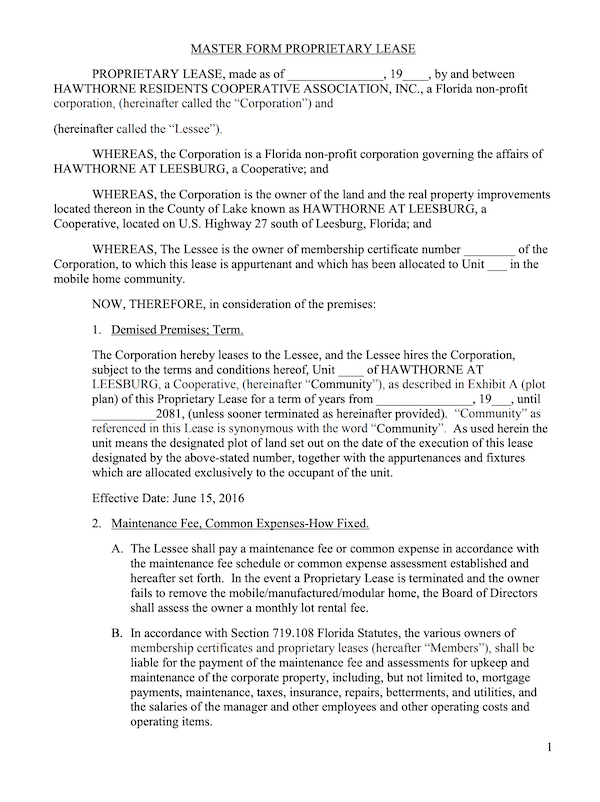Proprietary Lease: What Is It and How Does it Work
If you own an apartment in New York City or in any other major metro area, you probably own it as a co-op. The way you own an apartment as a co-op is two-step:
- You own shares of the corporation that owns the building and
- the corporation “rents out” your own apartment back to you.
That’s right, the co-op building in which you live rents out your apartment. To you.
The document which determines the landlord-tenant relationship between you and the management and the board of the corporation that owns your apartment building is called the proprietary lease.
You probably have many questions. What is a proprietary lease? How does it work? What does it look like?
Proprietary Lease Means You’re at the Mercy of the Board
Unfortunately for you, you are in many ways, essentially a tenant in your own apartment. The proprietary lease gives the management of the co-op the right to evict you. The board can use a number of reasons to evict you, for example, if you don’t pay the maintenance or the assessments or violate one of the co-op management’s restrictive rules. So not only are you in many ways a tenant in your own apartment, the fact that you have a proprietary lease means that you can also be evicted from your own apartment.
Want to transfer your apartment to a trust or put one of your children on the “deed?” Your proprietary lease probably has a language requiring you to get the “transfer of ownership” approved by the management and the board.
You are Also at the Mercy of the Bank
This is in addition to the fact that you will also need the transfer to the trust approved by the mortgage company. The way mortgages work in proprietary leases is that the bank that holds the mortgage has a mortgage lien on your shares of the corporation that owns your building, recorded in a central mortgage system and recorded with your apartment’s management. So before you transfer your shares and proprietary lease to a trust for yourself or add a name to the “deed,” you will need the bank’s approval. Otherwise, the bank that holds your mortgage may have the right to “accelerate” the mortgage and foreclose on your apartment even though you’re making mortgage payments.
You can see how you, in a way, get the worst of both worlds in a co-op with a proprietary lease. You can both be foreclosed on by the mortgage company and be evicted by your “landlord,” the coop management. But that’s how apartment ownership is set up in New York City, so we’ve all learned to live with it.
Problems with the Board or the Bank? Give me a Call
Give me a call if you have questions about your proprietary lease or are
- an apartment owner having issues with your coop management or board
- an apartment owner who is being evicted by the co-op management
- considering adding a name to a “deed” of a co-op
- having issues with the bank
- wish to include your co-op in your estate plan
My name is Albert Goodwin, and I have been handling proprietary lease issues for over a decade. We at the Law Offices of Albert Goodwin are here for you. We have offices in New York City, Brooklyn, NY and Queens, NY. You can call us at 212-233-1233 or send us an email at [email protected].

